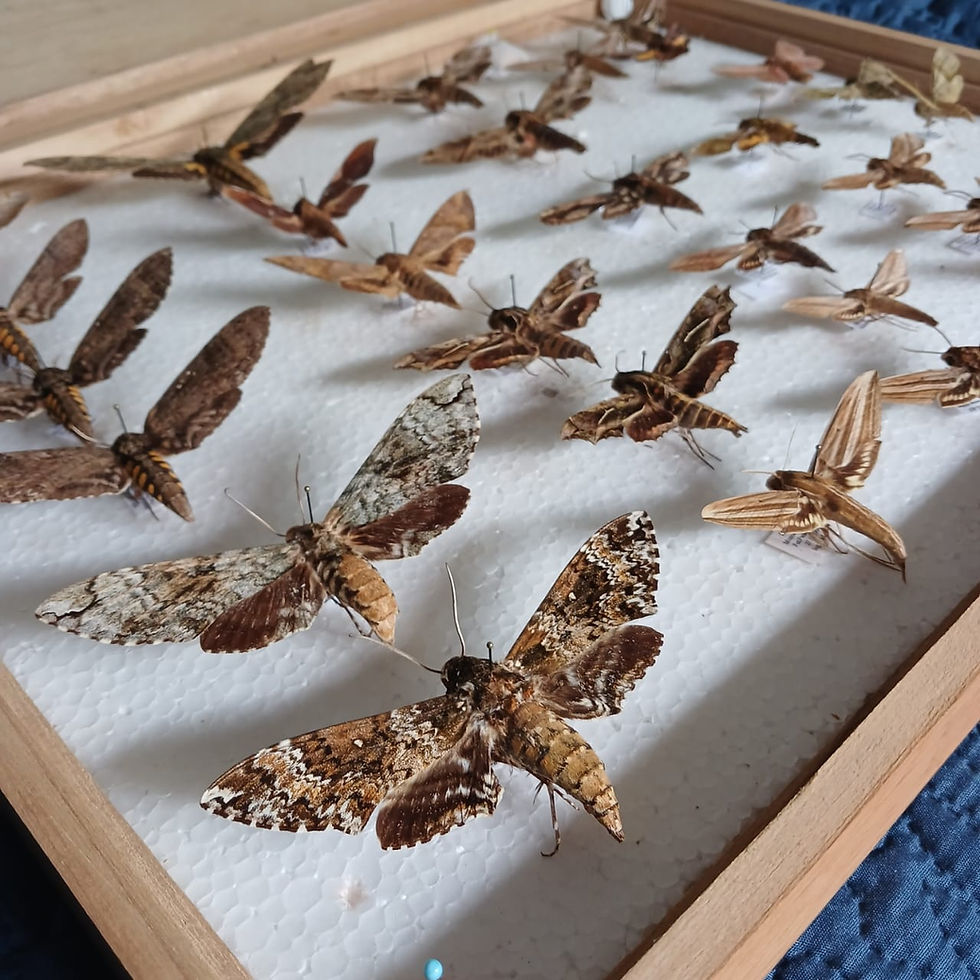Moths in a complex Sunday
- Andersonn Prestes

- 30 de set. de 2013
- 3 min de leitura
Atualizado: 5 de jan. de 2024

Today is Sunday. I have never really liked Sundays. Sunday is too slow. The good thing about Sunday is when your soccer team plays and wins. About today, I made chimarrão, I slept, I ate meat jun (It is a Korean plate – really good), I missed the Grêmio game, talked to my family, listened to samba, played guitar, and now, I am writing while listening to Hawaiian music in the reading room.
I have never really talked about my work here. My work is not like Sunday. I wrote about bureaucracy, philosophy, education, science, music… but never explicitly wrote about what I study daily and probably what I will study for the rest of my life.
I have this crazy idea and philosophical propensity to try to understand where we came from. Not only about us, but how all this world put its pieces together. After some training, I would like to understand mechanistically how this world works. That’s why I work. I know that it already sounds too deep for a slow Sunday. But to surprise you, I will try to explain how I would like to achieve such pretentious objective. I say: by studying insects – specifically moths. I am a moth expert. (Don't worry, I will not start saying how incredible I think they are, because it is not the case here). The case here is how I use moths, with all their intrinsic importance, to study and try to grasp broader answers. I use them as models. Briefly and simplistically, I study their histories and try to extrapolate some patterns about the history of life. We need to study the punctual to try to understand the whole, considering the complexity and differences between systems. Not everything that should be valid for moths would be valid for primates, of course. But broad and interesting conclusions can be drawn.
To study nature and history, and, therefore, the history of life, is very difficult. We have a kind of scientific chimera. Evolution, the change through time, is challenging. As any other exact science, it has a predictable portion, but also, as its own particularity, it has a non-predictable and historical portion. Each lineage or each organism had its very own path along time.
There are two things that I carry with me when interpreting my results. Maybe I can change my mind later. But for now they are here, strongly. One is complexity. I think this one will always stay with me. We are in an intricate world full of interactions with different units acting on different levels. There is always a perspective. Perhaps, there is always a bias. We have to try to see clearly and look at such complexity with courage to try to find the most appropriate answer.
The other is this historical part of life. The unique series of events that happened and will still happen. Unrepeatable. Perhaps, technically, one would call contingency.
In nature, we can understand how it works (natural selection is a strong mechanism), but not what will happen. We may infer the past, but not predict the future. Maybe I may understand the future in part, some aspects of it (the world is not a completely chaos, although it is very chaotic), but not the whole.
And I, as an evolutionary biologist, have to understand it, to keep it in mind. Otherwise I can get frustrated. I do not believe there is a mathematical formula that will reveal all nature’s mysteries at once. I believe in patterns and the messages that they can send to us. If we have repetition, a pattern, we may have an explanation – oh yes, something is going on. Perhaps, it is a new and surprising thing. One problem is to test it. But scientists have to be creative and find ways to test their hypothesis.
I have been writing for more than one hour now. I feel it is time to conclude my text. About my work? I use moths, this very interesting group of animals, to understand a complex and contingent world. They already gave me some clues and I hope to write a good thesis.





Comentários